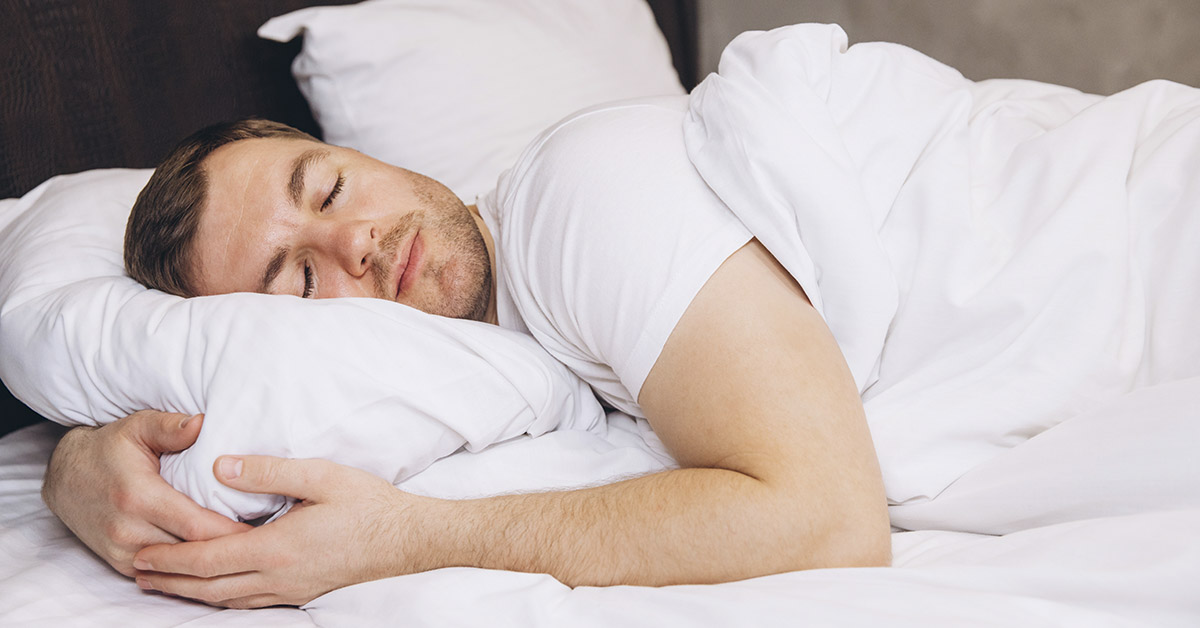Everyone goes through periods of sleeplessness. Work or school could be especially stressful, or you have terrible jet lag, or you’re excited about an upcoming vacation. But if the sleep deprivation doesn’t go away, you may want to examine your diet. Different foods can help you sleep, while others keep you restless. So change up your dinner or pre-bedtime snack to include foods rich in nutrients like melatonin, magnesium, and more.
Nuts
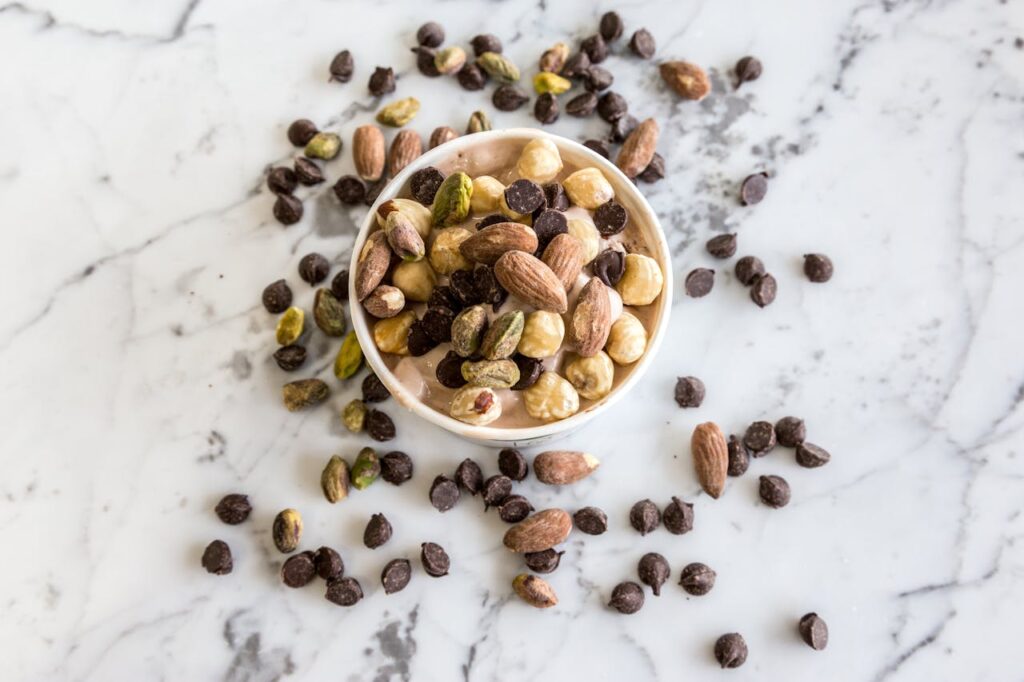
Nuts are rich in nutrients that help improve sleep quality
Nuts like almonds, pistachios, walnuts, and cashews are already considered healthy foods. However, they also contain nutrients that improve sleep, such as melatonin, omega-3s, magnesium, and zinc. Melatonin in particular is known for helping with sleep, and for good reason. It’s the hormone that regulates the body’s natural sleep cycles. Foods like nuts can help raise melatonin levels in the body, which helps signal the body it’s time to sleep.
Tart cherry juice
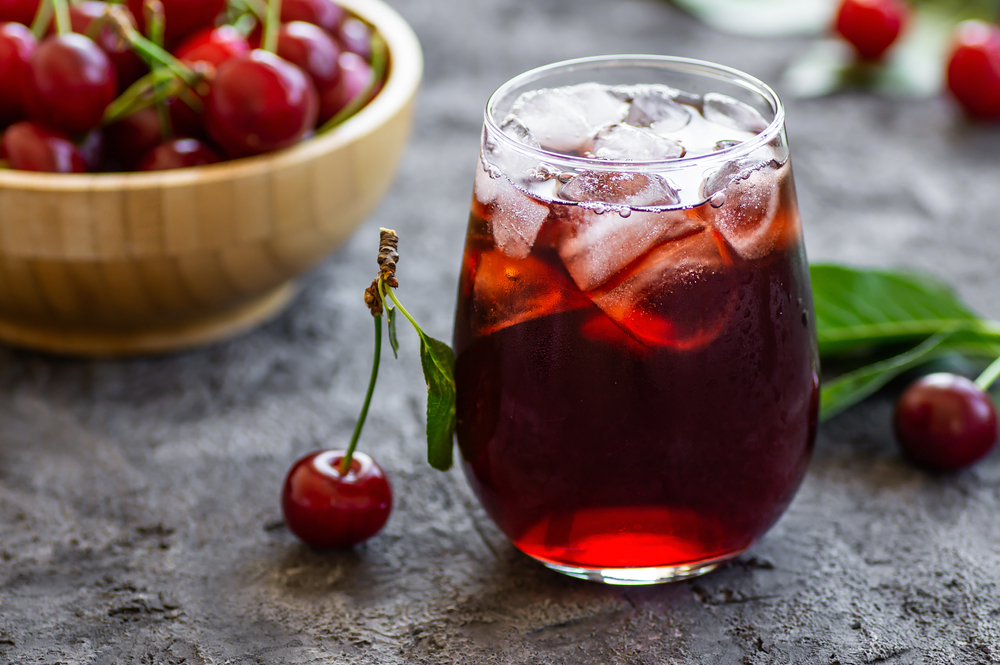
Research shows that drinking tart cherry juice before bed may improve sleep quality
The standard sweet cherries you find at grocery stores is typically a cultivar referred to as “Bing.” Tart cherries are distinct from sweet varieties, and include cultivars like Montmorency and Morello. Due to their unique flavor profile, they are usually used for cooking, baking, and juicing. And due to their unique nutritional profile, they may be used as a sleep aid. According to a 2025 review, tart cherries have a high concentration of melatonin and antioxidants that could improve sleep quality. However, the authors clarify that more research is needed to prove these effects.
Kiwi
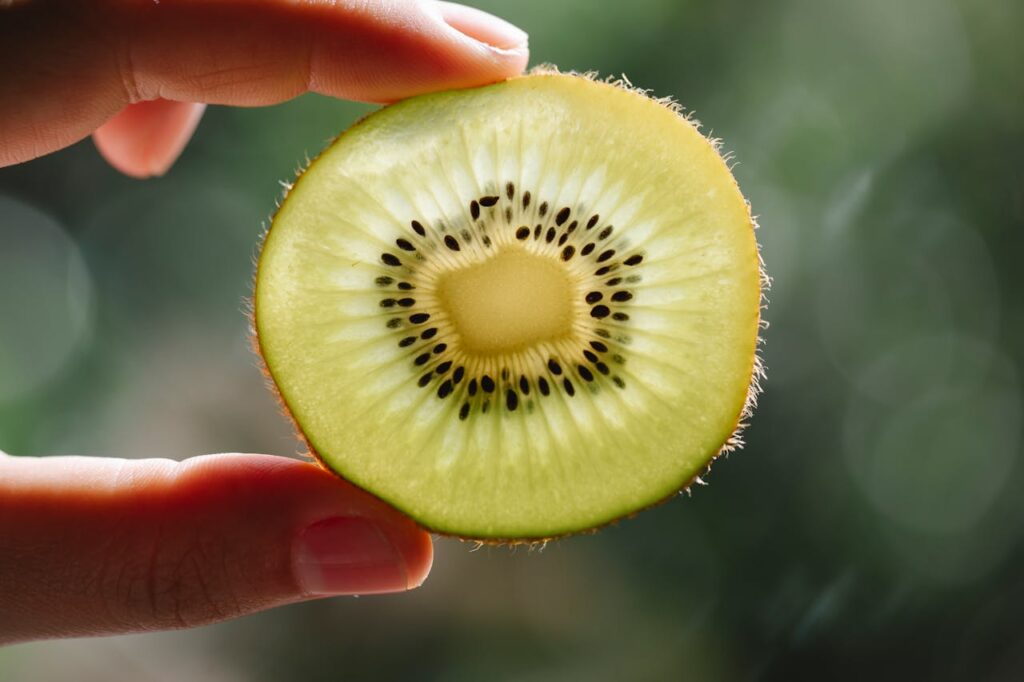
Eating kiwi before bed may help people sleep longer without interuptions.
Kiwis are tart and sweet fruits that are low in calories and full of helpful nutrients. They contain serotonin, melatonin, folate, fiber, and antioxidants. Serotonin in particular works as a precursor to melatonin, leading to better sleep duration and fewer awakenings. “Research suggests eating two kiwis about an hour before bed is the sweet spot,” said Raj Dasgupta, MD, a sleep specialist at Huntington Health, to Very Well Health. “That gives your body time to process the nutrients and potentially boost serotonin levels before you try to fall asleep.”
Oats
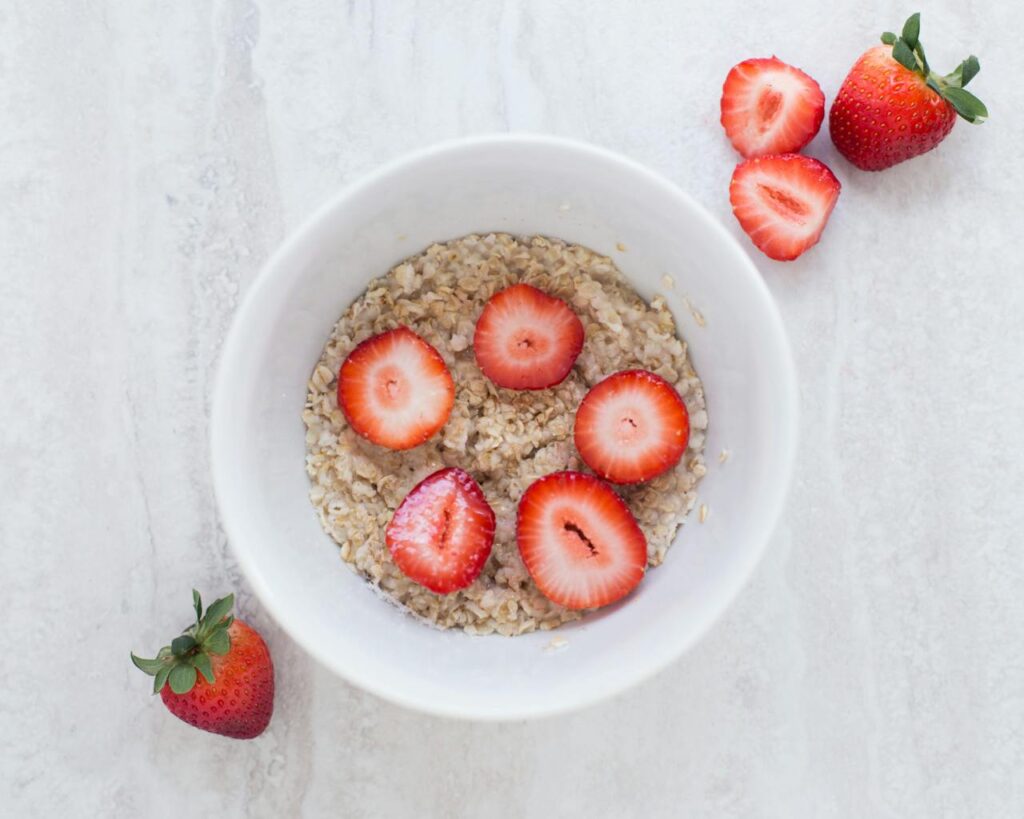
Oats contain antioxidants that can lower inflammation that has been associated with poor sleep
A 2016 review showed a link between sleep disturbances and higher levels of inflammation in the body. Oats are an anti-inflammatory food, containing antioxidants called avenanthramides, which can help improve sleep quality. In general, a diet full of anti-inflammatory foods may alleviate chronic pain that keeps people awake at night. Not only that, oats are rich in melatonin and fiber. Research shows that fiber-rich diets can improve sleep depth and decrease sleep interruptions.
Fatty fish
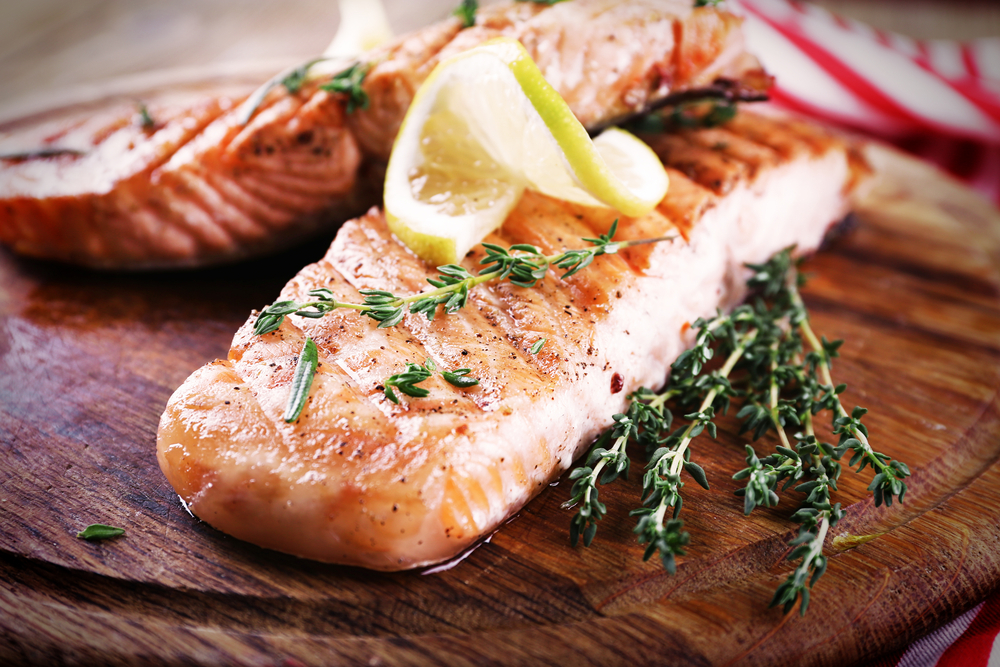
Fatty fish contains two types of omega-3 fatty acids that can help with better sleep.
Fatty fish like salmon, trout, and mackerel can provide a lot of potential health benefits. One reason is their high vitamin D content, which helps produce melatonin. They are also high in healthy omega-3 fatty acids, particularly eicosapentaenoic acid (EPA) and docosahexaenoic acid (DHA). A 2021 study on these acids showed that DHA might improve sleep by stimulating melatonin and serotonin production in the brain. Meanwhile, EPA might improve sleep efficacy and overall quality.
Pumpkin seeds
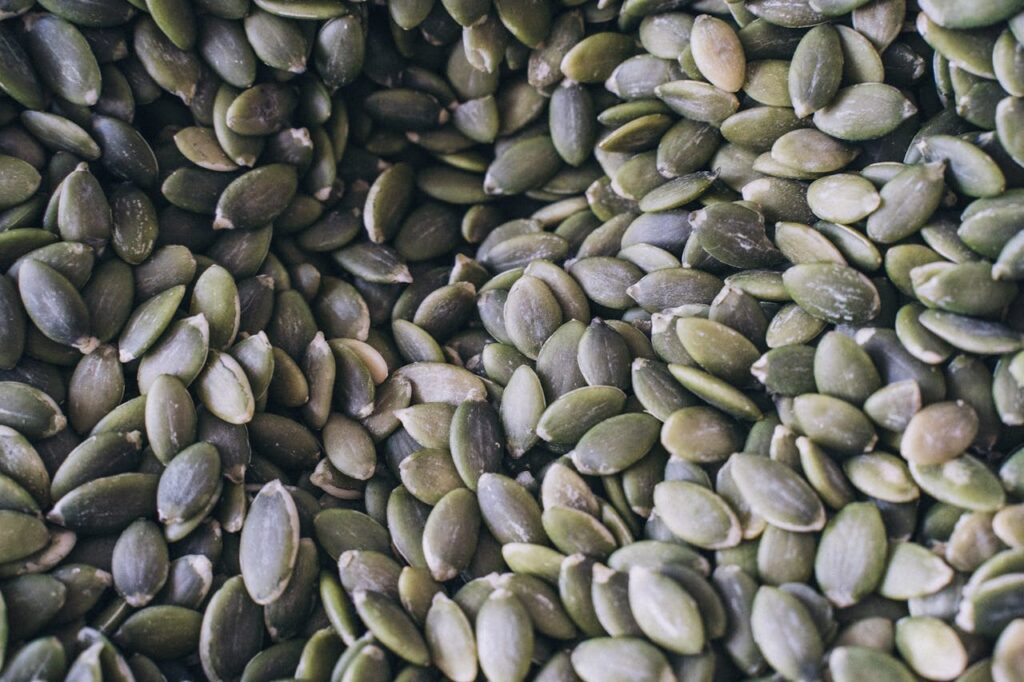
Pumpkin seeds are very high in magnesium, which can relieve muscle tension and enhance relaxation.
Pumpkin seeds are at the top of the list of magnesium-rich foods that may help you sleep. Magnesium is a mineral that is known as a muscle relaxant. This can help reduce physical tension that interferes with sleep. However, magnesium offers several more mechanisms that can aid sleep. For one, it helps activate gamma-aminobutyric acid (GABA), the neurotransmitter that quietens nervousness and enhances relaxation. At the same time, magnesium helps lower stress levels and supports the production of melatonin. All together, magnesium may be an effective natural sleep aid, according to the Sleep Foundation.
Chia seeds
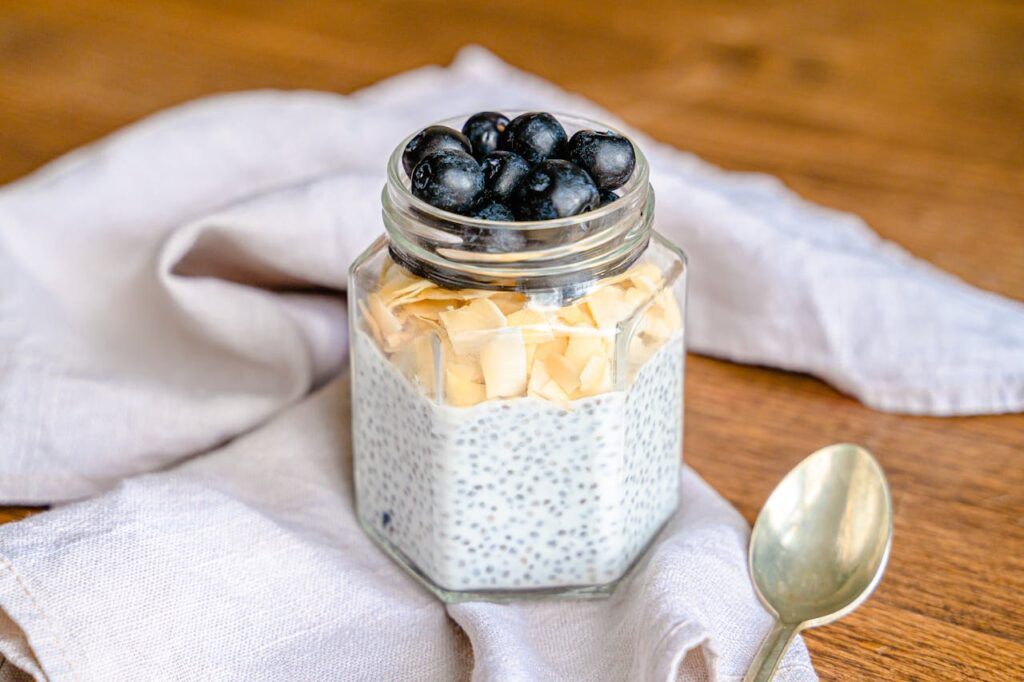
Chia seeds contain tryptophan, which may help people feel sleepy.
Chia seeds are full of an amino acid known as tryptophan. It helps the brain produce melatonin and serotonin, which can improve sleep quality and duration, according to WebMD. Turkey is famously rich in tryptophan so many people blame it for their post-Thanksgiving-dinner drowsiness. However, most people won’t roast a whole turkey every time they want to sleep through the night. (Plus, the post-Thanksgiving fatigue could be caused by eating large amounts of carbohydrates.) A more practical bedtime snack is chia seeds, which contain 124 milligrams of tryptophan per ounce. You can add them to smoothies, baked goods, oatmeal, salads, cereals, and yogurt. Alternatively, you can make chia pudding with milk or juice.
Read More: Why Women Need More Sleep than Men
Foods that disrupt sleep
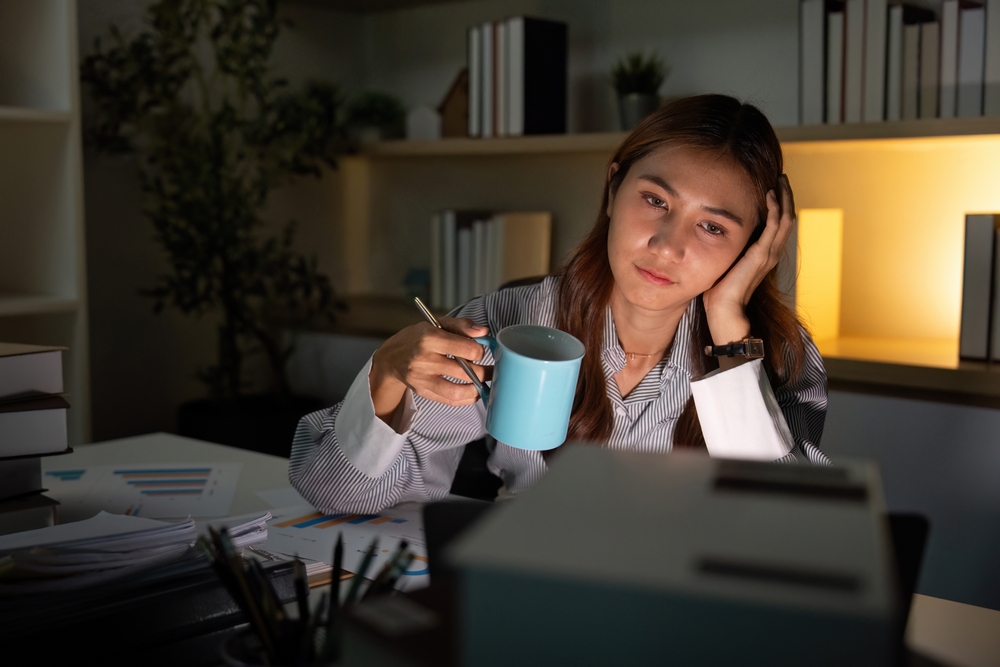
Drinking coffee late in the afternoon and evening could make it harder to fall asleep.
- Alcohol: Some people swear they need a nightcap to fall asleep, but it actually leads to worse sleep quality and frequent awakenings. “Alcohol decreases the amount of REM sleep you get,” said Kelly Waespe, M.D., an internist and sleep specialist at Baptist Health Medical Group, to AARP.
- Citrus fruits: Oranges and other fruits high in citric acid can cause heartburn or acid reflux if eaten too close to bedtime.
- Nightshades: Nightshades are a food group that includes tomatoes, peppers, potatoes, and eggplants. Eating them or their byproducts too close to bed can cause stomach upset such as acid reflux.
- Caffeine: This stimulant famously keeps people awake, so limit your consumption in the late afternoon and evening. It’s found in foods such as coffee, decaffeinated coffee, black and green tea, chocolate, energy drinks, cola, and other types of soft drinks.
- Spicy foods: They can trigger indigestion, acid reflux, and heartburn, all while increasing body temperature. All of this can make it harder to fall asleep.
How to optimize your diet for sleep
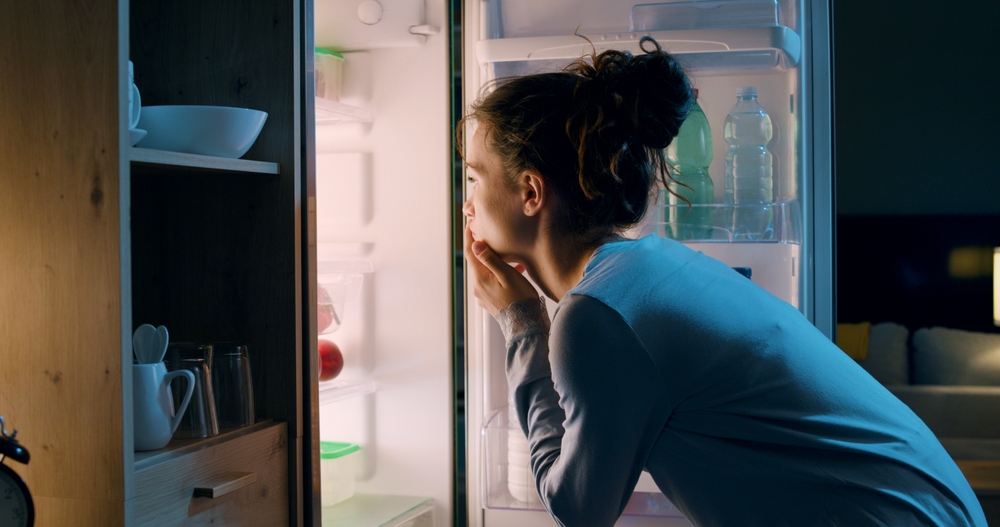
Plan healthy late-night snacks that will help you sleep and feel rested the next day
Keep in mind, you need to ensure your entire diet contributes to good sleep, not just the pre-bedtime snack. “You can’t eat poorly all day long and think that it’s enough to have a glass of tart cherry juice before bedtime,” says Marie-Pierre St-Onge, a professor of nutritional medicine at Columbia University Institute of Human Nutrition in New York, to BBC. What you eat throughout the day can still be processed by the body at night. Also, experts generally say to avoid going to sleep on a full stomach, since this can also worsen sleep. There are also many ways to improve sleep beyond diet, such as getting enough exercise and sunlight during the day. If you believe you may have a sleep disorder, speak to your doctor about tailoring a treatment plan to your lifestyle.
Read More: Trouble Sleeping? Try One of These Natural Sleep Remedies
